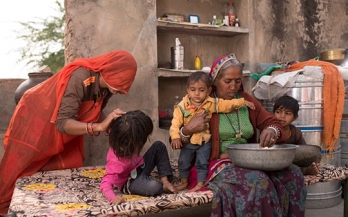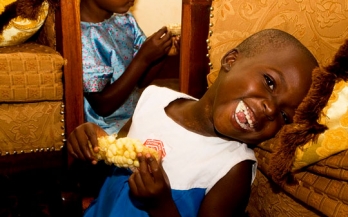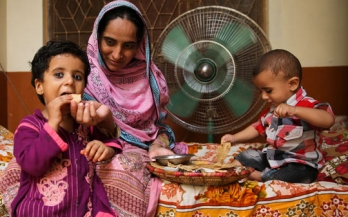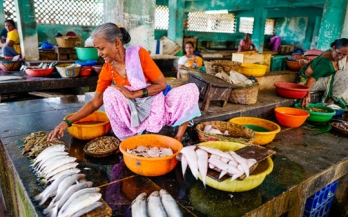AP Foods’ approach to supplementary food production is a strong example of how GAIN’s nutrition partners learn from and use business-centered practices to achieve improved quality and efficiency within public sector or non-profit organisational contexts.
The purpose of this study was to examine the potential of Maisoyforte 6-24, a new fortified, non-instant cereal for infants and young children (IYC), which was proposed by a local Ghanaian company to the Global Alliance for Improved Nutrition (GAIN) for start-up support.
In the Philippines, the prevalence of undernutrition and micronutrient deficiency remained high period of three years. The objectives of this survey were to describe the current infant and child feeding practices and identify major individual, family and community factors that contribute to current breastfeeding practices, as well as to determine growth/nutritional and micronutrient status.
The department of Paediatrics and Child Health, Aga Khan University conducted the Pakistan National Nutrition Survey in 2011 to assess the population nutritional status, particularly among women and children using standard international parameters and indicators. This survey report describes the results of these additional analyses.
In 2008, GAIN began drafting plans to create sustainable market-based solutions to address the problem of micronutrient deficiencies in children in South Africa. This project covers strong benefits for identifying low-cost, scalable methods early on (such as mobile campaigns) to educate and inform customers.
In support of the state government of Rajasthan and the Indian Integrated Child Development Services, the Global Alliance for Improved Nutrition (GAIN) launched a project to pilot a production model for producing supplementary nutrition via self-help groups.
In 2012, GAIN joined forces with the Kenyan Ministry of Health, to increase the production and distribution of micronutrient powder sachets. This case study describes the approach taken and highlights the challenges, opportunities and lessons learned.
This case study describes the approach taken between GAIN and AP Foods to scale up and improve their production of fortified supplementary foods, such as ready-to-cook mixes for common meals, and highlights the challenges, opportunities and lessons learned.
In India’s largest state of Rajasthan, a high percentage of children are undernourished and are not consuming the necessary vitamins and minerals they need to thrive. This case study describes project approach taken for producing supplemental food and also highlights the key lessons learned, challenges, and opportunities moving forward.
Many children in Côte d’Ivoire are consuming an inadequate diet that lacks the important vitamins and minerals needed for healthy growth. This case study describes the approach taken to help address the malnutrition issues facing young infants and children and also highlights the key lessons learned, challenges, and opportunities moving forward.










